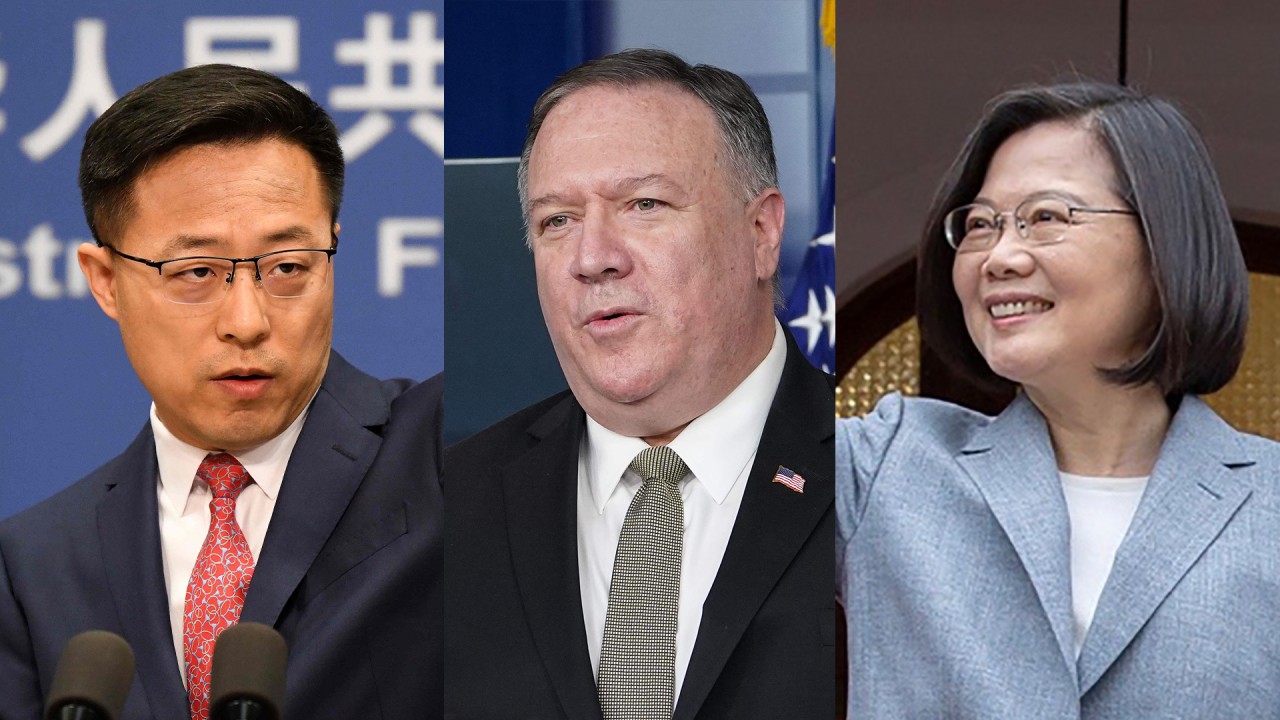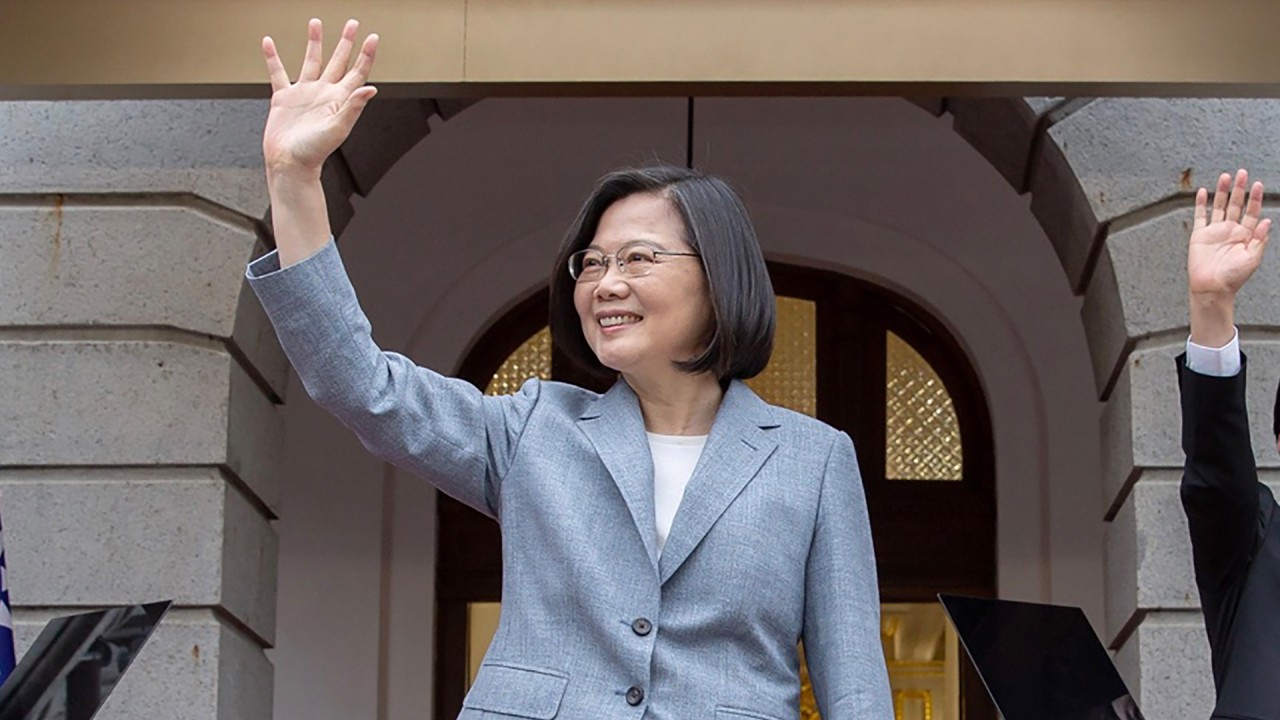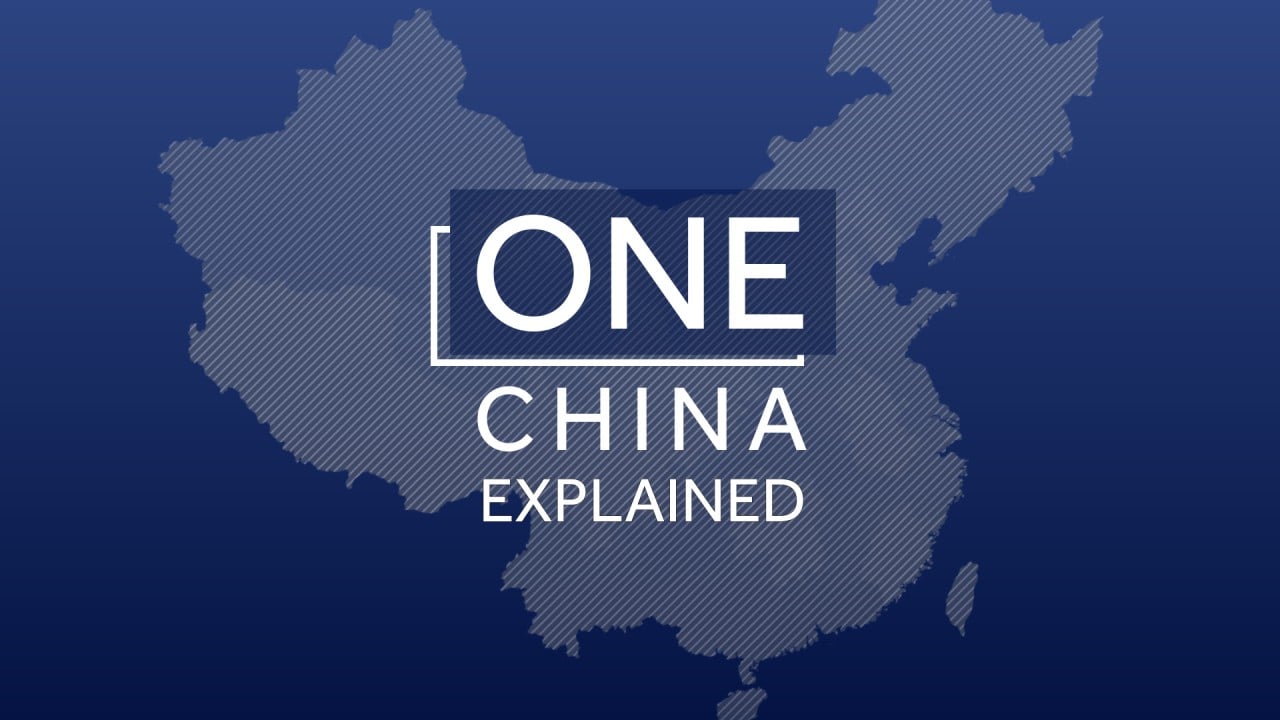
Beijing warns of action against Washington after Pompeo congratulates Taiwan’s Tsai
- US secretary of state has warm words for Tsai Ing-wen at her inauguration ceremony
- China says the comments amount to interference in its internal affairs
In three statements issued on Wednesday, mainland China’s foreign, defence and Taiwan affairs departments lashed out at US Secretary of State Mike Pompeo, accusing him of violating the one-China policy and interfering in China’s internal affairs.

02:47
China warns US of ‘strong response’ regarding Taiwan, saying island’s independence is 'dead end'
He addressed her formally as “president” and his comments were read out at the inauguration ceremony.
“Her re-election by a huge margin shows that she has earned the respect, admiration, and trust of the people on Taiwan,” Pompeo said.
“Her courage and vision in leading Taiwan’s vibrant democracy is an inspiration to the region and the world.
“As we look toward the future, I am confident that, with President Tsai at the helm, our partnership with Taiwan will continue to flourish.”
In her inauguration speech, Tsai vowed to defend the island from threats, and said Taiwan would not accept Beijing’s “one country, two systems” proposal for cross-strait unification.
Thanking Pompeo for his “high praise of the country’s democracy”, Taiwan’s foreign ministry said it was the first time a US secretary of state had congratulated the island’s president.
Several other senior US officials, including assistant secretary of state for the Bureau of East Asian and Pacific Affairs David Stilwell and US deputy national security adviser Matthew Pottinger also offered their congratulations to Tsai through video clips, adding that the US would continue to cooperate with her in strengthening democracy and prosperity in the Indo-Pacific region.

02:11
Tsai Ing-wen inaugurated for second term as Taiwan’s president
The mainland’s foreign ministry soon issued objections, saying the comments violated the formal agreements underpinning US-China relations.
“In their congratulatory messages, certain US officials and politicians addressed Tsai Ing-wen as ‘president’ and trumpeted the so-called partnership with Taiwan,” the ministry said.
“We have expressed our strong indignation and condemnation over this.”
Calling Taiwan an inseparable part of China, the ministry said the US actions had betrayed their commitment that Beijing was the sole and legitimate government of all of China and sent a wrong signal to independence forces in Taiwan – something that would seriously endanger stability in the Taiwan Strait and damage US-China relations.
It vowed to take “necessary corresponding actions for the mistake made by the US”.
Why Tsai Ing-wen’s success in containing Taiwan’s coronavirus outbreak could trigger a backlash from Beijing
The defence ministry also stressed that the “Taiwan issue” was an internal matter for China.
“The Chinese side resolutely opposes any countries having any official forms of contact and military exchanges with Taiwan,” it said.
Ma Xiaoguang, a spokesman for the State Council’s Taiwan Affairs Office, said Beijing had “firm resolution and full confidence” that it would defeat any external forces in their attempts to interfere in China’s internal affairs. It was also confident of upholding China’s territorial integrity while steadily pushing for cross-strait unification.
Beijing considers Taiwan a wayward province that must be returned to the mainland fold, by force if necessary. It has been upset by what it views as growing attempts by the administration of US President Donald Trump to use the self-ruled island to counter the mainland, as the two countries tussle over trade, military influence and the recent coronavirus outbreak.
Ma also took aim at Tsai for refusing to acknowledge the 1992 consensus – a verbal understanding made in Hong Kong in 1992 that the two sides of the Taiwan Strait agree that there is only one China, though each can have its own interpretation of what that China stands for.
Tsai did not refer to the consensus on Wednesday, a departure from her 2016 inaugural speech when she said that she respected that there was a talk in Hong Kong in 1992 between Taiwan and China but neither side reached any agreement.
But Tsai did say that Taiwan was willing to engage in dialogue with Beijing and make more concrete contributions to regional security. She also said she would continue her cross-strait policy based on “peace, parity, democracy, and dialogue” – principles she stressed during her first term in office.
“We will continue to handle cross-strait affairs according to the Constitution of the Republic of China and the Act Governing Relations between the People of the Taiwan Area and the Mainland Area,” Tsai said, adding this had been her consistent position.
“Both sides have a duty to find a way to coexist over the long term and prevent the intensification of antagonism and differences,” she said, stressing that cross-strait relations had reached a historical turning point.
“Faced with changing circumstances, I will hold firm to my principles, adopt an open attitude to resolve issues, and shoulder my responsibilities as president. I also hope that the leader on the other side of the strait will take on the same responsibility, and work with us to jointly stabilise the long-term development of cross-strait relations.

02:17
'One China’ explained
“Over the next four years we will continue to fight for our participation in international organisations, strengthen mutually beneficial cooperation with our allies, and bolster ties with the United States, Japan, Europe and other like-minded countries,” Tsai said.
“Although we were once isolated in the world, we have always persisted in the values of democracy and freedom, no matter the challenges ahead of us.”
Tsai was re-elected in January in a landslide that was seen as a public mandate for her administration’s handling of cross-strait relations with Beijing and its strengthening of ties with the US.
Analysts said Tsai’s speech, though not provocative, was not acceptable to Beijing, given that it did not refer to the “1992 consensus”.
“Her speech about cross-strait relations actually carries less goodwill than what she had said four years ago because she simply omitted the part about the 1992 consensus,” said Charles Chen, executive director of Washington-based Institute for Taiwan-America Studies, an opposition Kuomintang think tank.
Chen, who is also a KMT legislator, said Tsai had also lowered the importance of the cross-strait relations.
“No mutual trust, no sharing of mutual interest and no communication mechanisms were mentioned [in the speech],” he said, adding this would shut the door of cross-strait communications and rapprochement for four more years.


